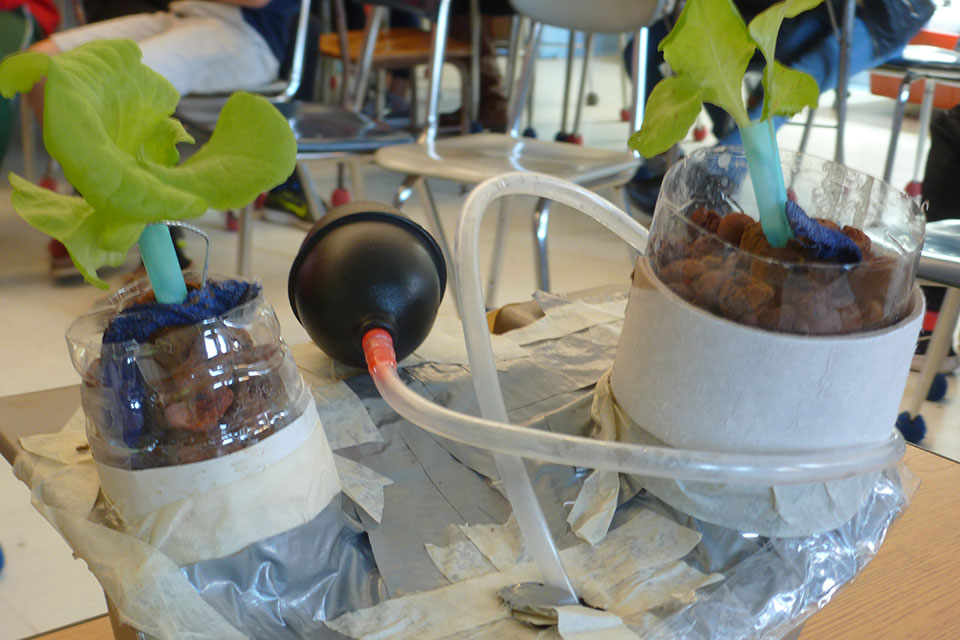Mangiante’s hydroponics guide published in peer-reviewed journal

A guide for designing windowsill hydroponics systems developed by Dr. Elaine Silva Mangiante was recently published in Science Scope, the National Science Teaching Association’s peer-reviewed journal for middle level and junior high school science teachers.
“Engineering a Windowsill Hydroponics System to Grow Lettuce” presents an integrated science/engineering unit for middle school classrooms in which students design a windowsill hydroponics system for the home using a wicking material to supply water to lettuce plants.
The hydroponics unit was partially funded by a grant from the U.S. Department of Agriculture’s National Institute of Food and Agriculture. Procured by Dr. Jameson Chace and Boston College professor Dr. Michael Barnett, the grant provided hydroponics systems, materials, curriculum and professional development to middle and high school teachers in Rhode Island and the Boston area over the course of three years.
In creating the hydroponics unit, Silva Mangiante, an assistant professor in the Department of Education who specializes in science and engineering education, designed the engineering challenge and developed assessments for teachers to evaluate their students’ understanding of the design process and the factors needed to promote plant growth.
Silva Mangiante recruited four middle school teachers in three Rhode Island districts to implement the hydroponics unit and investigated the validity and reliability of its related assessments. “I was particularly interested in having teachers from urban, suburban and rural districts examine the curriculum and assessment tools with different student populations,” she said.
Together with Amy Semerjian, a research designer and analyst at Boston College’s Innovation in Urban Science Education Lab, Silva Mangiante visited classrooms, provided support to the teachers and interviewed participating students to gather data. “The teachers were enthusiastic to offer this learning opportunity to their students and provide feedback on the engineering challenge and the assessments,” she said.
Silva Mangiante said that throughout the implementation, students showed significant gains in understanding both the engineering design process and of hydroponics plant growth. Students also presented their design prototypes and revisions to Silva Mangiante, Semerjian and Chace in a “Shark Tank” format.
“This unit provides middle school students with a learning experience in life science integrated with an authentic engineering design challenge for food production,” Silva Mangiante said. “Using a multidisciplinary approach to learning, the unit was effective not only in fostering significant learning outcomes for students in different communities, but also in serving the needs of concrete learners as well as those who thrive from a conceptual challenge.”

